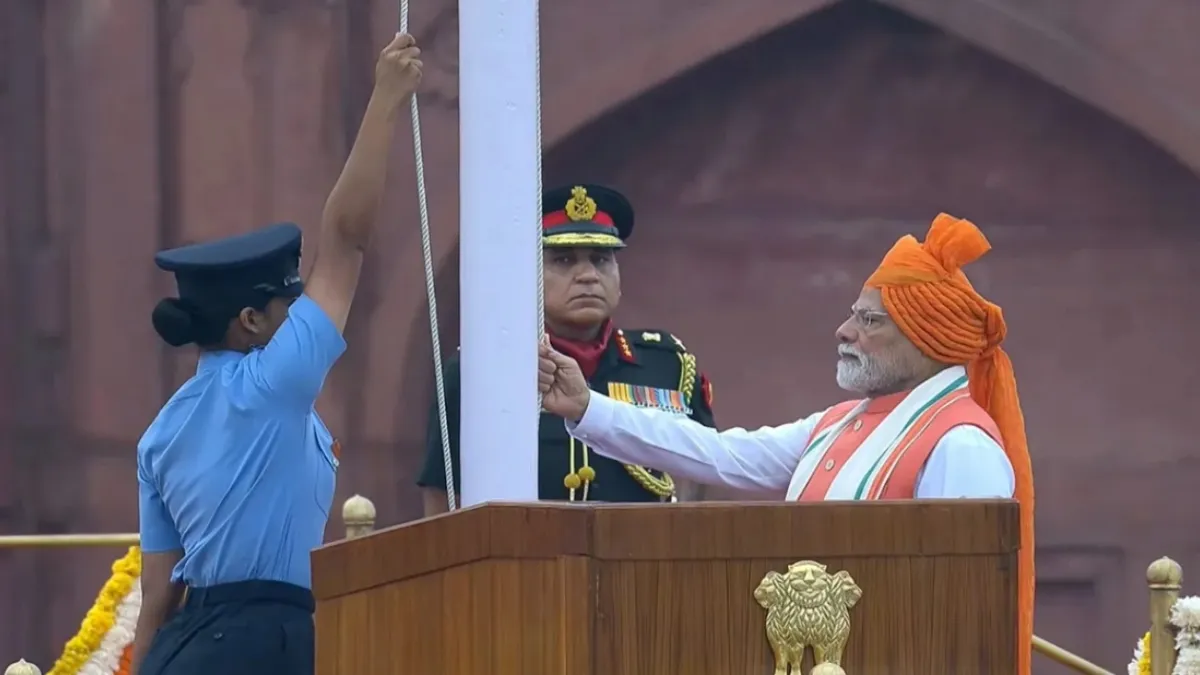PM Modi Independence Day Speech
Speaking from the historic Red Fort on India’s 79th Independence Day, Prime Minister Narendra Modi delivered a clear and uncompromising warning to Pakistan. This came in response to nuclear threats issued by Pakistan after India suspended the Indus Waters Treaty, a decades-old water-sharing agreement between the two countries.
“India will no longer tolerate nuclear blackmail,” the Prime Minister declared, making it clear that the country’s sovereignty and dignity are non-negotiable. He added that blood and water will not flow together, reiterating a long-held stance against sharing water with a nation accused of sponsoring cross-border terrorism.
The Indus Waters Treaty Dispute
Signed in 1960, the Indus Waters Treaty laid out how India and Pakistan would share the waters of the Indus River system. However, tensions escalated earlier this year after the April 22 Pahalgam terror attack, in which 26 civilians lost their lives. In response, India temporarily halted the treaty’s implementation.
Pakistan reacted strongly, with its military leadership threatening destruction of any Indian-built infrastructure on the Indus channels that could reduce water flow into Pakistan.
Modi’s Message: Water for India, Not the Enemy
PM Modi called the treaty “an injustice to the people of India,” arguing that Indian rivers were nourishing Pakistan while Indian farmers struggled for irrigation.
“The right over India’s share of water belongs only to India and its farmers. A compromise on farmers’ interests and national interests is not acceptable to us. Not anymore,” he said.
His words left no ambiguity — the government’s priority is to ensure India’s share of river water benefits its own people first.
Pakistan’s Nuclear Threat and Modi’s Response
Pakistan’s army chief, Field Marshal Asim Munir, widely seen as the country’s most powerful figure, recently warned that Pakistan had enough missiles to destroy any Indian infrastructure on the Indus. Speaking during a visit to the US, he went further, claiming Pakistan could “obliterate half the world” if its survival was threatened in a future war with India.
PM Modi’s Independence Day speech served as a direct rebuttal to this rhetoric.
“If the enemy dares to commit any misadventure, the Indian Armed Forces will give them a befitting reply,” he warned.
By linking the water dispute with national security, the PM signalled that India would answer any provocation with strength.
Why This Matters
The suspension of the Indus Waters Treaty and the strong words from both sides mark a new low in India-Pakistan relations. For decades, water sharing was seen as one of the few areas of cooperation between the two neighbours. Now, it has become another flashpoint alongside border disputes and terrorism.
By taking such a public stand, PM Modi has reinforced a message of zero tolerance for threats and underscored the government’s resolve to protect India’s resources, security, and farmers.
The Road Ahead
While Pakistan has called for restoring the treaty, India’s position appears firm. Unless there is a change in Pakistan’s actions on the ground, the suspension could become permanent. The larger geopolitical impact — including potential mediation attempts by other nations — remains to be seen.
For now, India’s Independence Day 2025 will be remembered not just for celebrations, but for a defining statement of intent: India will decide its own course, without bending to fear or blackmail.



